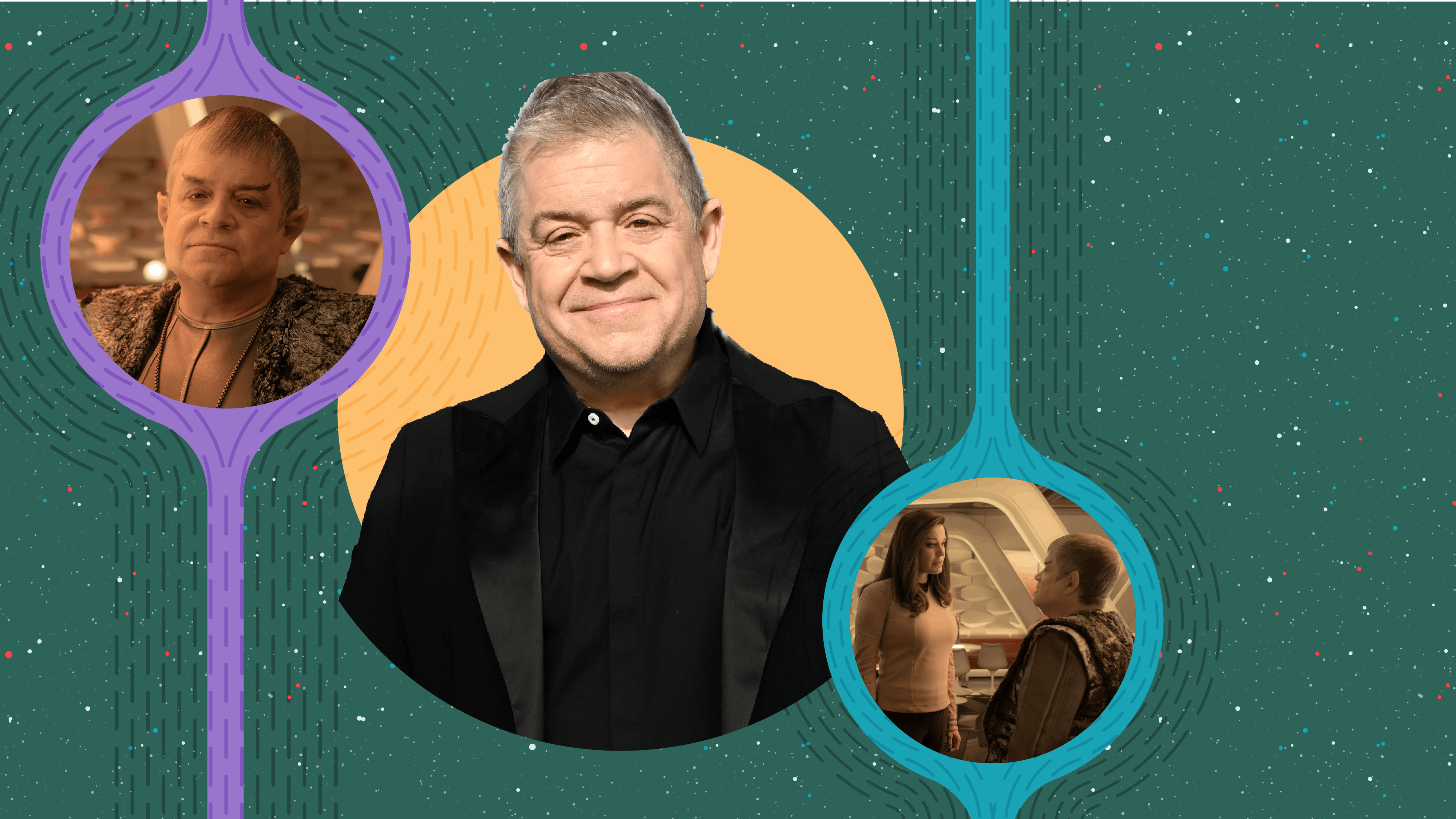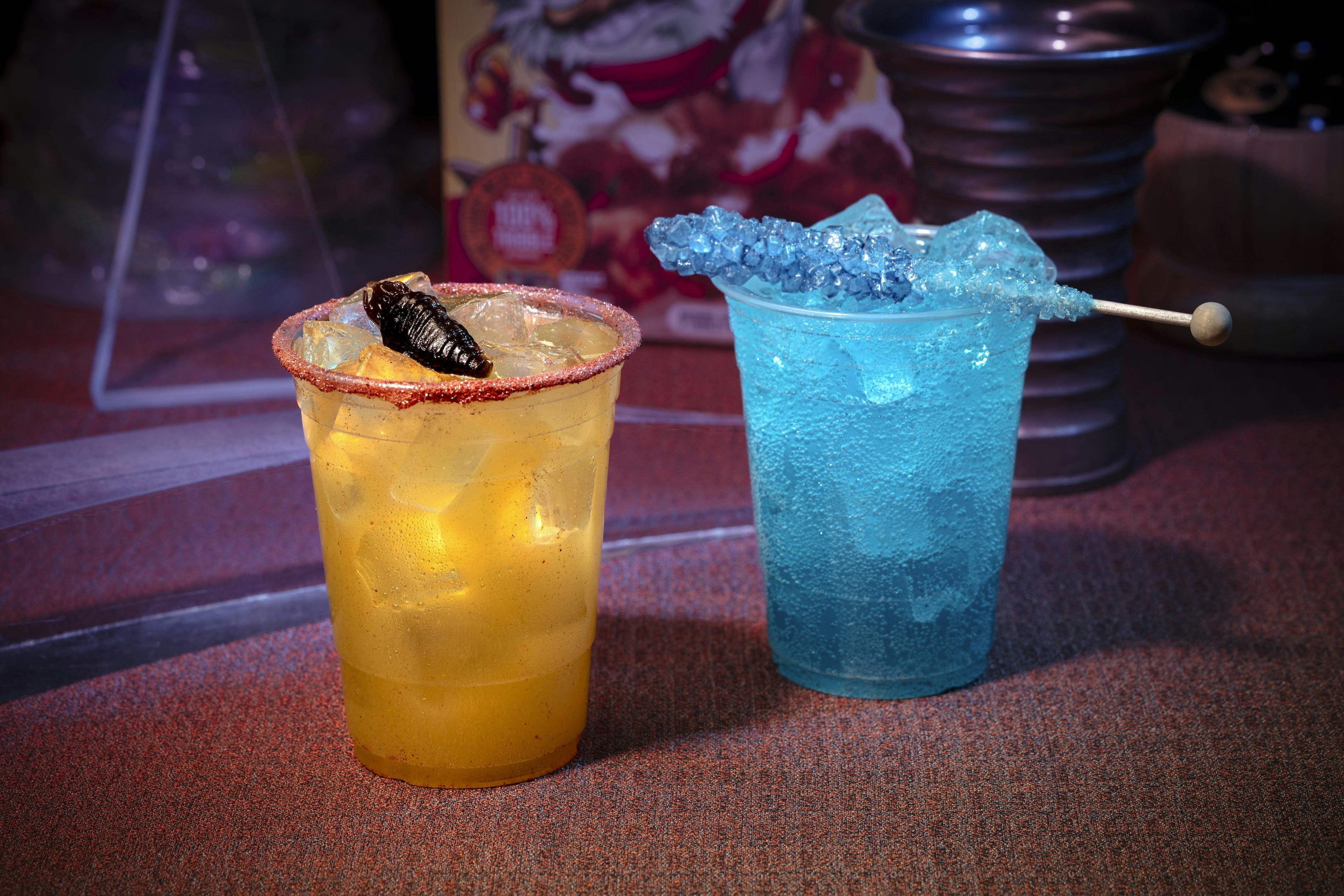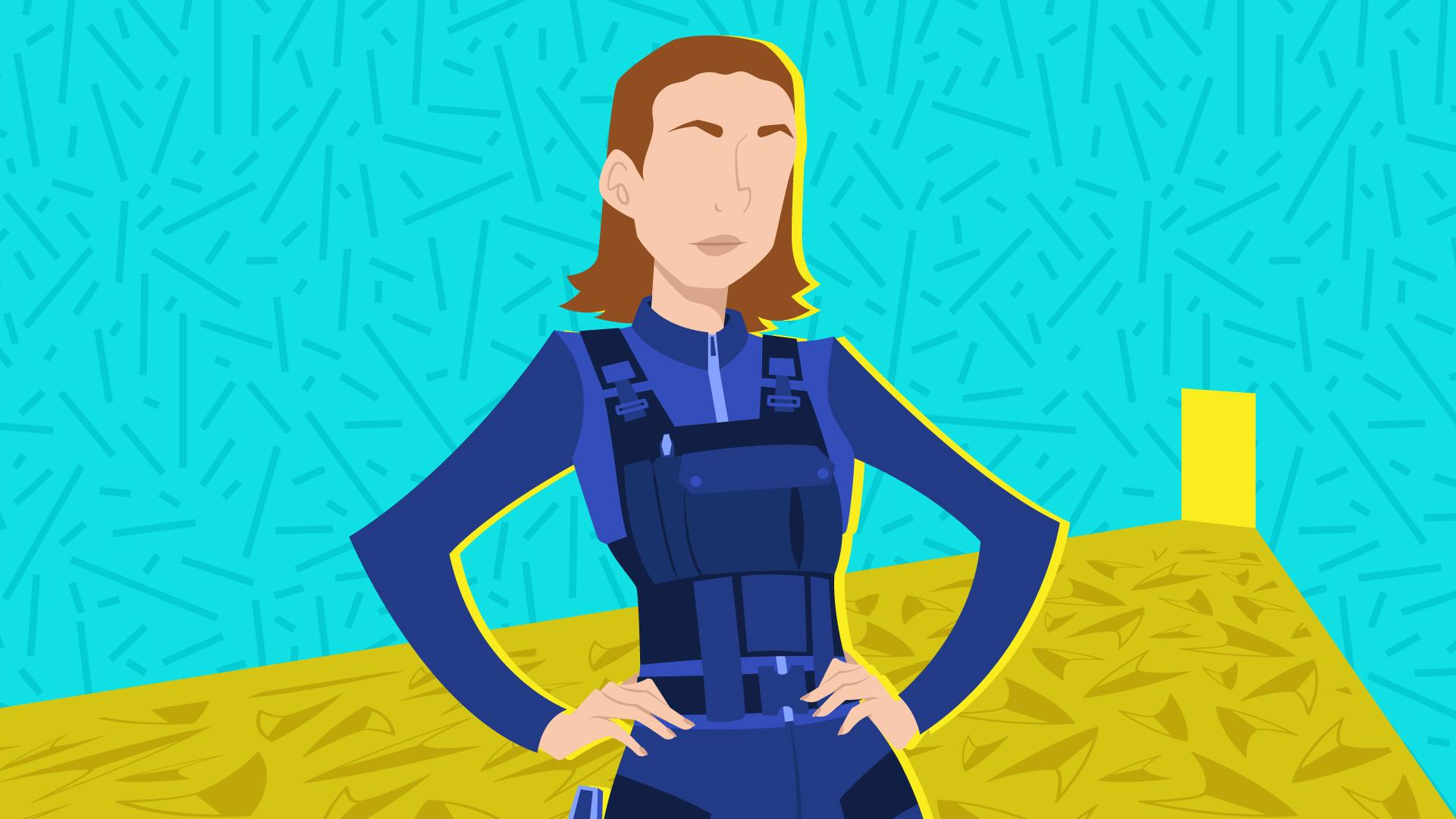Published Nov 16, 2022
WARP FIVE: Prodigy's Creatives on Penning A Love Letter to Star Trek
Aaron Waltke, Kevin and Dan Hageman share what went into 'All the World's a Stage' episode.
SPOILER WARNING: Discussion for Star Trek: Prodigy — Season 1, Episode 13 "All the World's a Stage" to follow!

Getty Images / StarTrek.com - Rob DeHart
Welcome to Warp Five, StarTrek.com's five question post-mortem with your favorite featured talent from the latest Star Trek episodes.
The latest episode of Star Trek: Prodigy, "All the World's a Stage," serves as a touching love to Star Trek as a whole.
While our intrepid, young crew is a touch deflated that they can't head to Starfleet any time soon, what with a living weapon aboard the U.S.S. Protostar and all, that doesn't mean they can't uphold the values of Starfleet and help others in the galaxy. The Protostar picks up a distress call leading them to a planet where the Enderprizians built a society — New Enda-Prize — off of what they've gleaned from their first contact with a crewmember from The Original Series-era U.S.S. Enterprise.
StarTrek.com had the opportunity to speak with co-executive producer and writer Aaron Waltke, as well as series' creators, executive producers, and co-showrunners Kevin and Dan Hageman, about "All the World's a Stage."
Star Trek: Prodigy - Star-Flight Landing Party
With the series only half-way through its first season, they're definitely doing something right as the National Academy of Television Arts and Sciences (NATAS) last week recognized Star Trek: Prodigy with an Emmy nomination for Outstanding Animated Series for their first annual Children's & Family Emmy Awards.
When asked about the reaction to the nomination and resonating with audiences in its first season, Aaron Waltke responded, "It's a wonderful feeling because it's what we set out to do with the show. One of the great pleasures of Star Trek: Prodigy was from the beginning, we set out to create an entry point for new audiences and young audiences to watch together along with old school Star Trek fans like myself."
"The fact that it seems to be finding its audience and its fan base so quickly is wonderful and brings a tear to my eye," continued Waltke. "The next generation is the most important thing in Star Trek. Everybody has their favorite series, and oftentimes that coincides with the series that you grew up with. For me, that was TNG and to a certain extent TOS, then that looped me right into Deep Space Nine, and then Voyager,Enterprise and beyond. It's a great privilege and an honor, but also a responsibility, to provide that for the next generation of fans, to have their own little gateway into the gigantic Star Trek universe and the many amazing and wondrous things that are hidden within it."
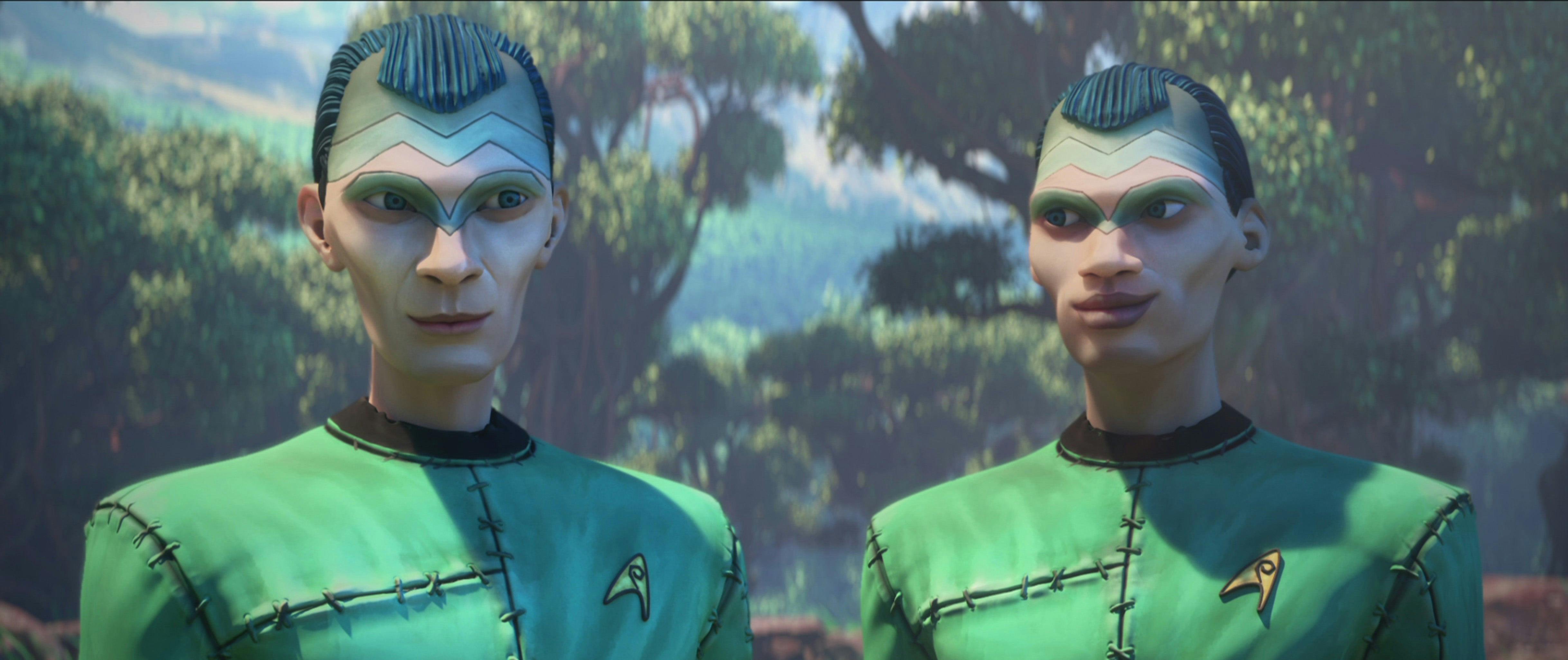
StarTrek.com
The Hagemans and Waltke gave us a behind-the-scenes walkthrough at how the writers' room mapped out the season and how this specific episode fit into the larger puzzle.
"In the writers' room, when we looked at Season 1 and the greater story arc, we always look at where the characters are," explained Kevin Hageman. "At this moment and place, our characters are doubting themselves a bit. They feel like frauds. We needed the concepts of each episode; we're still in this greatest hits of Star Trek. What are the greatest hits? For me, one of them was 'Miri' in The Original Series; there's countless episodes where the crew land on a planet and it's Earth-based, with a great mystery and reveal. We really enjoyed diving into that with this one."
Waltke, who penned the script for this episode, revealed why this episode leaned in on The Original Series. "The Original Series, when I was young, was my chance to see all these crazy aliens and neon fluorescent 1960s Jet Age science-fiction at its fines."
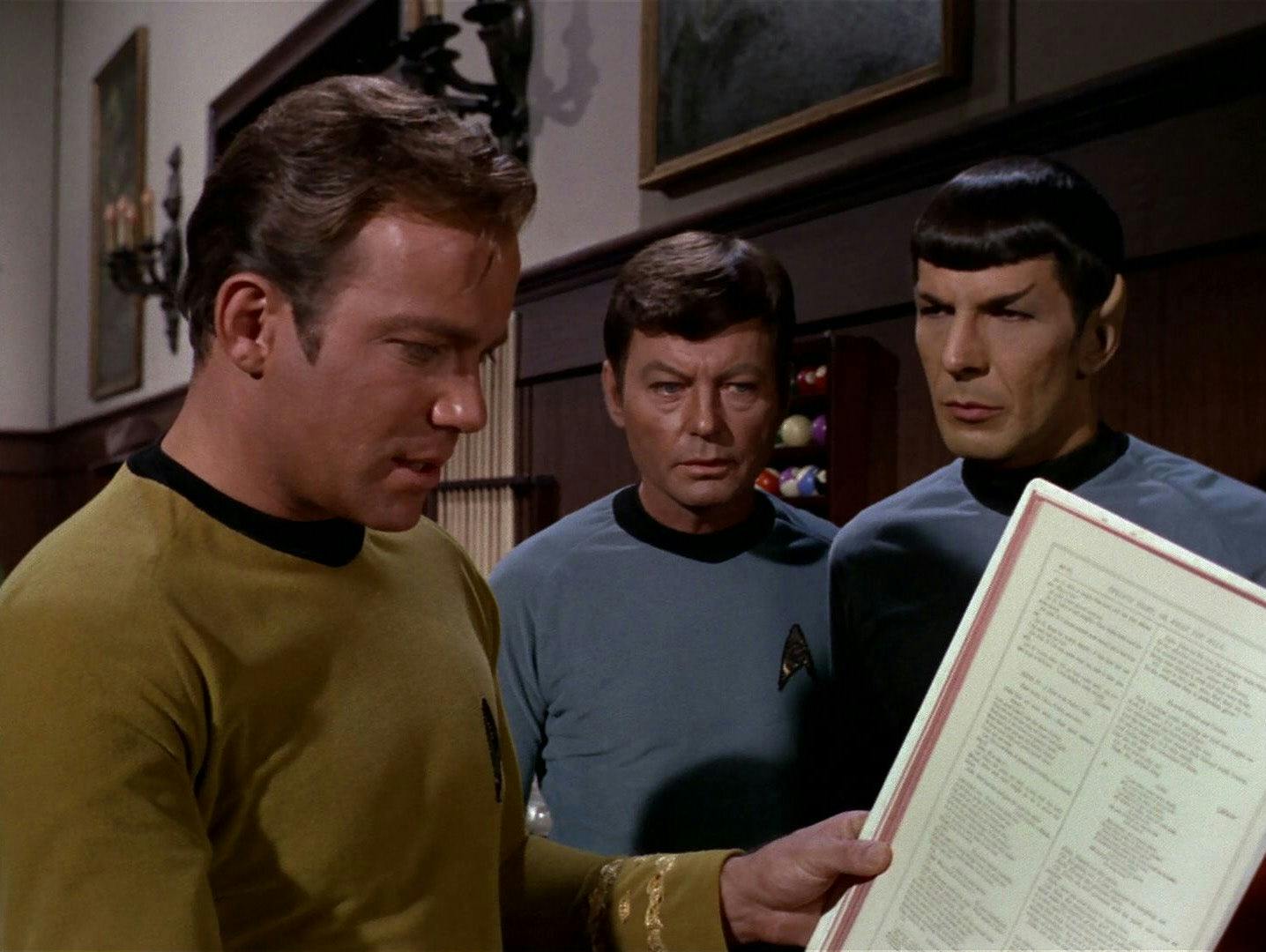
StarTrek.com
"It is a love letter to The Original Series because TOS instilled in me the boldness to be unapologetically strange and new," added Waltke. "Everyone would agree that every single episode of The Original Series takes a very bold swing. It doesn't always connect perfectly, but it always makes you stop and think and wonder. I wanted to embrace that weirdness and that old school Star Trek of showing up on a planet and it being a completely impossible situation, and then trying to logically figure out how we got there."
"Obviously, cultural contamination episodes are a mainstay of Star Trek, the most famous one being 'A Piece of the Action' where a single novel, a gangster dime novel is left behind and it became a gangster planet. Then, at the end of that, they left behind a tricorder and sort of mused aloud, 'What will become of this planet if we leave that tricorder behind?' And spiritually speaking, this is answering that question."
Star Trek: Prodigy - Constitution-Class Holo-Console
In addition to being a cultural contamination Prodigy story that calls back to The Original Series, "All the World's a Stage" also weaves in terminology from classic, legacy Trek with modern Trek. Instead of referring to the crew as an "away team," the Enderprizians recognizes them as a "landing party," and in place of "isolinear chips," they call out "duotronic relays."
Waltke gave a shout-out for that enjoyable addition, "I had a great back and forth with David Mack, established Star Trek author and our Star Trek consultant on Season 1, when I was planning this episode. He's written both TNG and TOS, and we loved going back and forth finding those areas where it's a generational thing."
"Your baby boomer parents are going to be very different than your Zennial cousins, but ultimately, they're all part of the same family," surmised Waltke. "Some of the fun of this particular episode was showing that Star Trek and Starfleet can contain multitudes. And in many ways, that's baked into the very premise of seeking out new life and new civilizations and welcoming them into the Federation at-large."
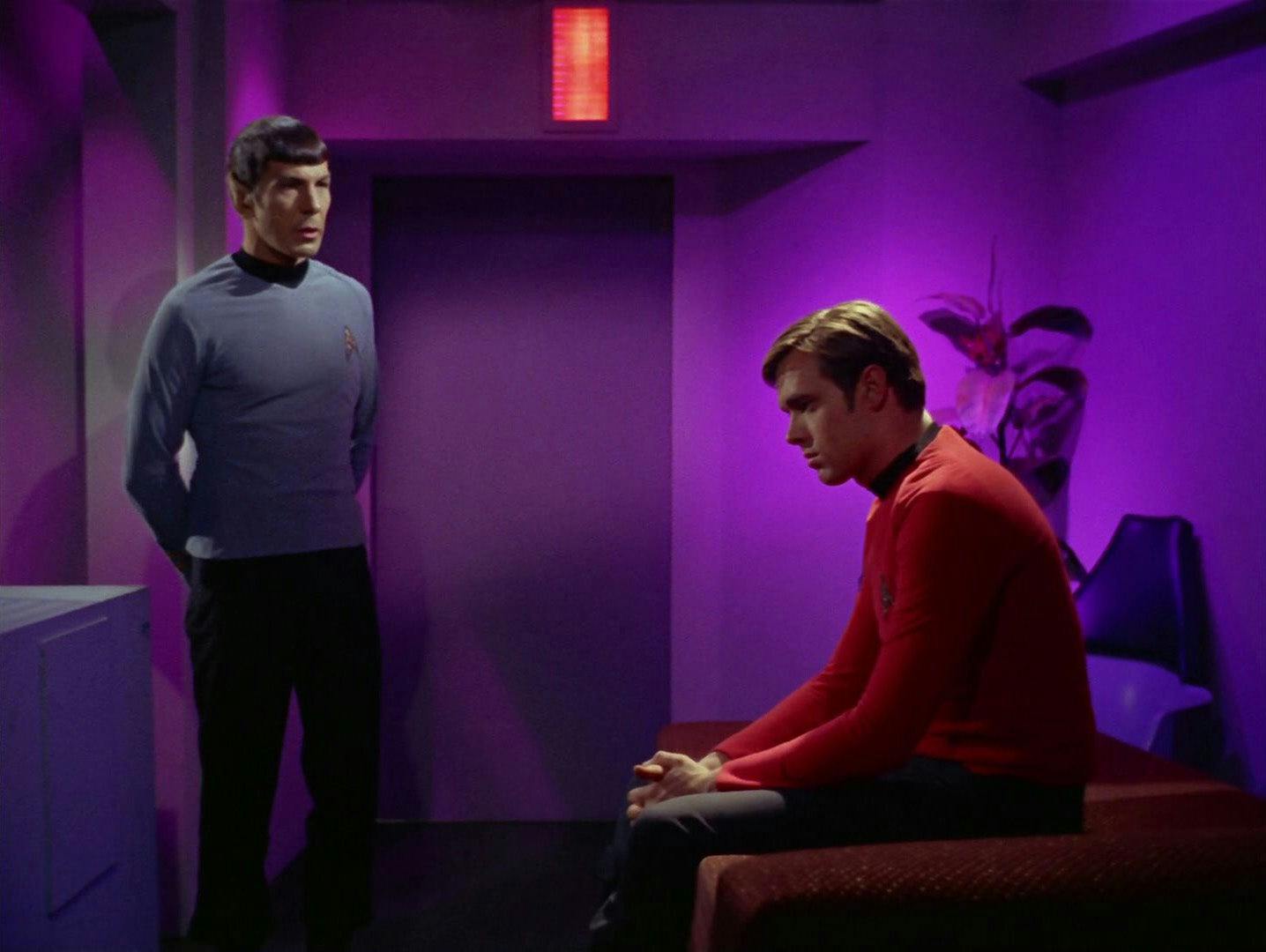
StarTrek.com
Between the Lower Deckers on Star Trek: Lower Decks and the Protostar crew, and reaching out to the next generation of fans, it's great to discover the monumental impact of Ensign David Garrovick as the hero the Enderprizians center their society on.
"There's something beautiful reaching back from The Original Series with Ensign Garrovick," stated Dan Hageman. "What I really like about the episode too is that it's about the Enderprizians, but it's also about our crew, and they're all a bunch of outsiders who dare to pretend to be Starfleet. There's value in that."
On the episode's journey and each group's understanding of Starfleet, Dan said, "There are hard and stringent rules to Starfleet; you can't just get into Starfleet. You can't just have a heart of pure gold and they let you in; it's a start. There's a lot more that they have to do than just want to be in Starfleet."
"You can be imperfect," added Kevin Hageman. "You don't need to be perfect to be in Starfleet; that's a great message."
Star Trek: Prodigy - The Legend of En-Son
On giving audiences an update Ensign Garrovick, who was last seen in The Original Series episode, "Obsession," Waltke loved the closure. "He holds the distinct record of being the only minor Red Shirt to ever survive an away mission on Star Trek. He sort of disappears after his episode 'Obsession,' along with the Galileo. In Season 3 [of The Original Series], it suddenly became the Galileo 2. There was always that question on my mind, 'What's going on with the rest of the crewmembers you see for a day and then who vanish into the lower decks of the original Enterprise?'"
"In 'Obsession,' where Garrovick and Kirk fight the dikironium cloud creature, they take pains to give him a full arc. It really feels like he's a member of the crew, and then he just mysteriously disappears," noted Waltke. "It makes you wonder what is going on with the rest of the crew members you see passing by in the background, drinking Saurian brandy. I wanted to give Garrovick an adventure to prove that he really had embraced the lessons of that episode and became a little more Kirk-like in his own way."
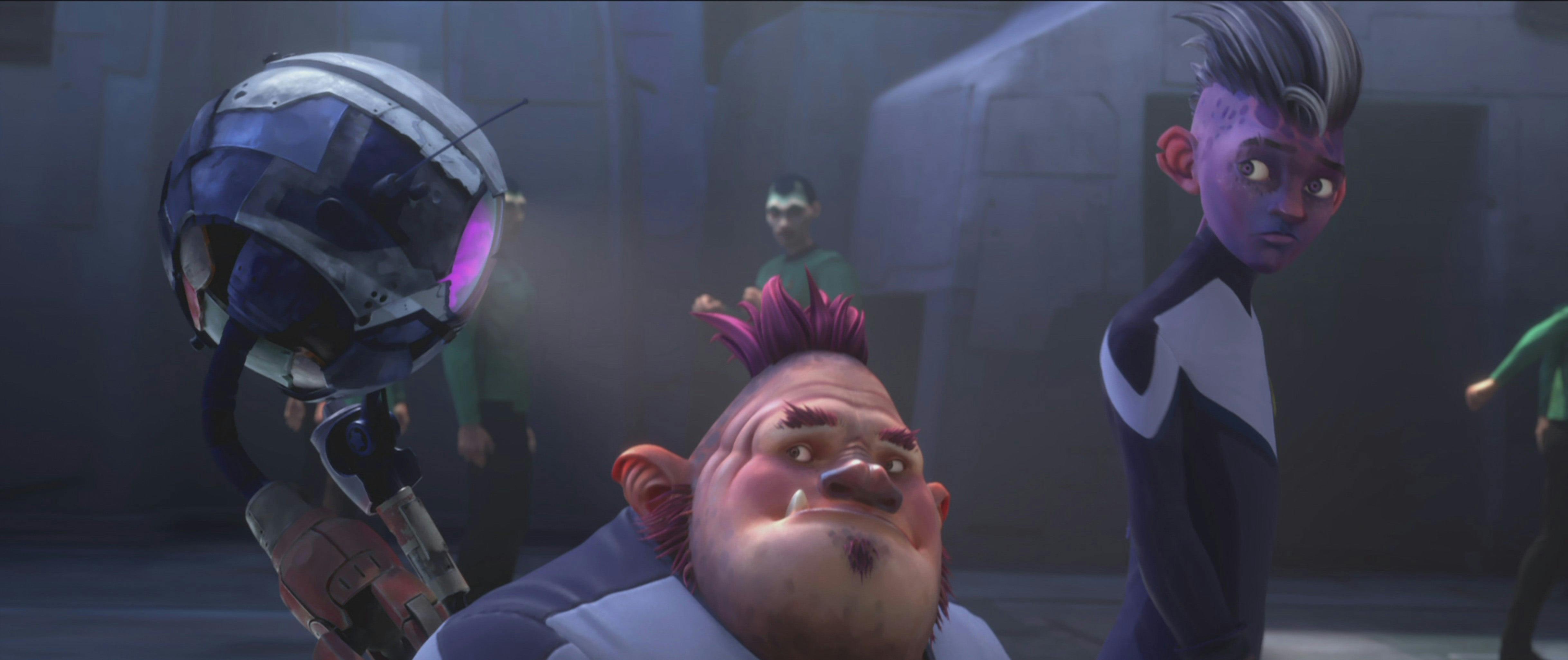
StarTrek.com
The two characters most impacted by the predicament with the Living Construct aboard the Protostar and the encounter with the Enderprizians are Dal and Jankom Pog.
"Dal and Jankom are two characters that have the most arc in this episode," reflected Waltke. "Dal, in particular, he's dealing with what a lot of us do as young people, and I'll admit, even now as a professional writer, with imposter syndrome. It's very real to feel like you're not living up to the legacy or the expectations of what your society, or your parents, or your school are putting on you."
"Dal needed a reminder that you can't control the circumstances you're born into or that you're thrust into, but what you can control is what you believe in and what you do in those moments to embody those beliefs and ideals," continued Waltke. "Dal realizes everyone can be Starfleet if you embrace what it represents."
As for our favorite Tellarite, Waltke shared, "There's a little story of an engineer in there too; Jankom is frustrated because he sees this problem with the Living Construct, but he can't figure out how to disarm it, and he feels like a failure of an engineer. My own grandfather was an engineer; he was a tool and die model-maker. He had this expression, 'How do you eat an elephant? Tiny bites.' This episode was a reminder for Jankom that just because he can't solve the big problems right now doesn't mean you can't tackle the little ones and be useful along the way. Eventually, the answers will reveal themselves."
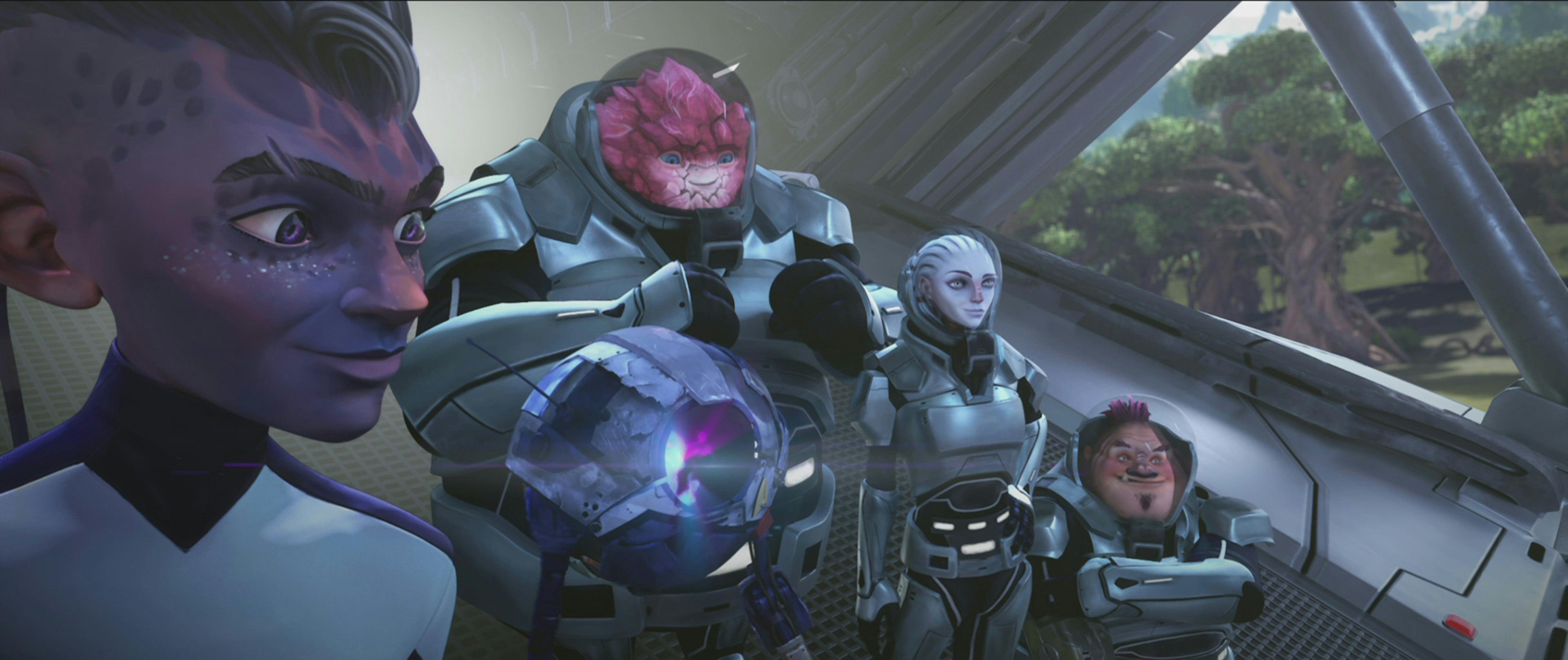
StarTrek.com
In the episode, when Dal's disappointment in the crew's deferred Starfleet dreams bubbling to the surface, one of the Enderprizians reminds him, "We know we're not Star-Flight, but you don't need a real ship to believe in what it stands for."
On giving us a glimpse of what's to come for the remainder of the season as we watch the Protostar grapple with the Living Construct aboard their ship, Waltke left us with this, "You'll find that the definition of what makes a person Starfleet, even if they're not Starfleet, is in fact the central theme for the rest of the season and perhaps beyond."
"I encourage everybody to stay tuned, and everything that we're dealing with now will only magnify as our heroes get closer to Starfleet and the inevitable conclusion of Season 1," concluded Waltke.

